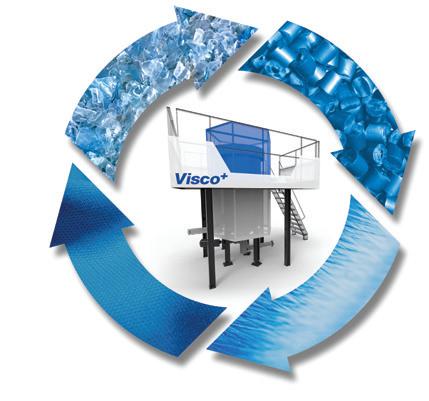
1 minute read
Microban Unveils PFAS-Free Water-Resistant Textile Technologies
Microban International, a leader in product protection solutions, announced the launch of H 2O Shield, a PFAS- and PFOS-free water-resistant finish portfolio for textiles. This technology represents Microban’s first expansion outside of its traditional antimicrobial and odor control offerings, marking a significant growth of its capabilities.
H 2 O Shield is designed to meet the growing demand for sustainable, high-performance textile finishes and offers a consumer-friendly alternative for brands phasing out harmful chemicals known as per- and polyfluoroalkyl substances (PFAS). This includes the class of chemicals, PFOS, well-known for their extensive use, persistence in the environment and potential health concerns.
The technology is customizable, offering four distinct repellent options tailored to meet specific aesthetic and performance needs of manufacturers and brands:
• WR1000: Best suited for overall water repellency in lowtouch applications such as shower curtains, awnings and tents.
• WR1001: Optimized for wicking performance for athletic and sweat-resistant apparel such as performance jackets, ski jackets and running fabrics.
• WR1002: Formulated to address chalking defects and color shift issues on dark-colored fabrics prone to scratches, such as hiking gear and gloves.
• WR1003: Helps to prevent tearing and is best suited for applications where seam slippage is a concern, such as backpacks and tents.
Ekoten Tekstil, a subsidiary of Sun Tekstil, a leading global textile manufacturer, is revolutionizing fabric production with cutting-edge artificial intelligence (AI) applications designed to optimize efficiency, reduce waste, and enhance quality control. Ekoten Tekstil sets a new benchmark for precision in textile manufacturing by integrating AI-powered real-time defect detection into its production lines.
One of the most significant sustainability challenges in textile manufacturing is water consumption, particularly in dyeing and finishing processes, which account for nearly 20% of global industrial water pollution. By reducing defects earlier in production, Ekoten Tekstil’s AI solutions minimize unnecessary reprocessing and excess dyeing cycles, reducing water use at a critical stage of textile production. www.ekoten.com.tr
For fabrics that are traditionally difficult to treat, Microban offers an optional pretreatment, WR-P. This pretreatment expands fabric compatibility, reducing water repellent agent dosage by 15-20% and increasing the wash durability of the treatment.
The technology provides excellent water resistance for textiles, achieving results of 80 or over on the AATCC TM22 spray repellency test. The finish has also been proven to maintain effectiveness even after 20+ home launderings.
Beyond water resistance, H2O Shield is designed to integrate seamlessly with other Microban technologies, including antimicrobial and odor control solutions.
H 2 O Shield technologies are applied using standard wet chemistry processes commonly found in textile manufacturing, such as pad baths. WR-P is applied as a last step during an exhaust process (after a dyeing cycle). www.microban.com











